RTX Remix, the tool being used to create Half-Life 2 RTX, enters open beta today — now anyone can remaster old DirectX 8 or 9 games
The tool that made Portal RTX and is being used to make Half-Life 2 RTX is now free to use by anyone.
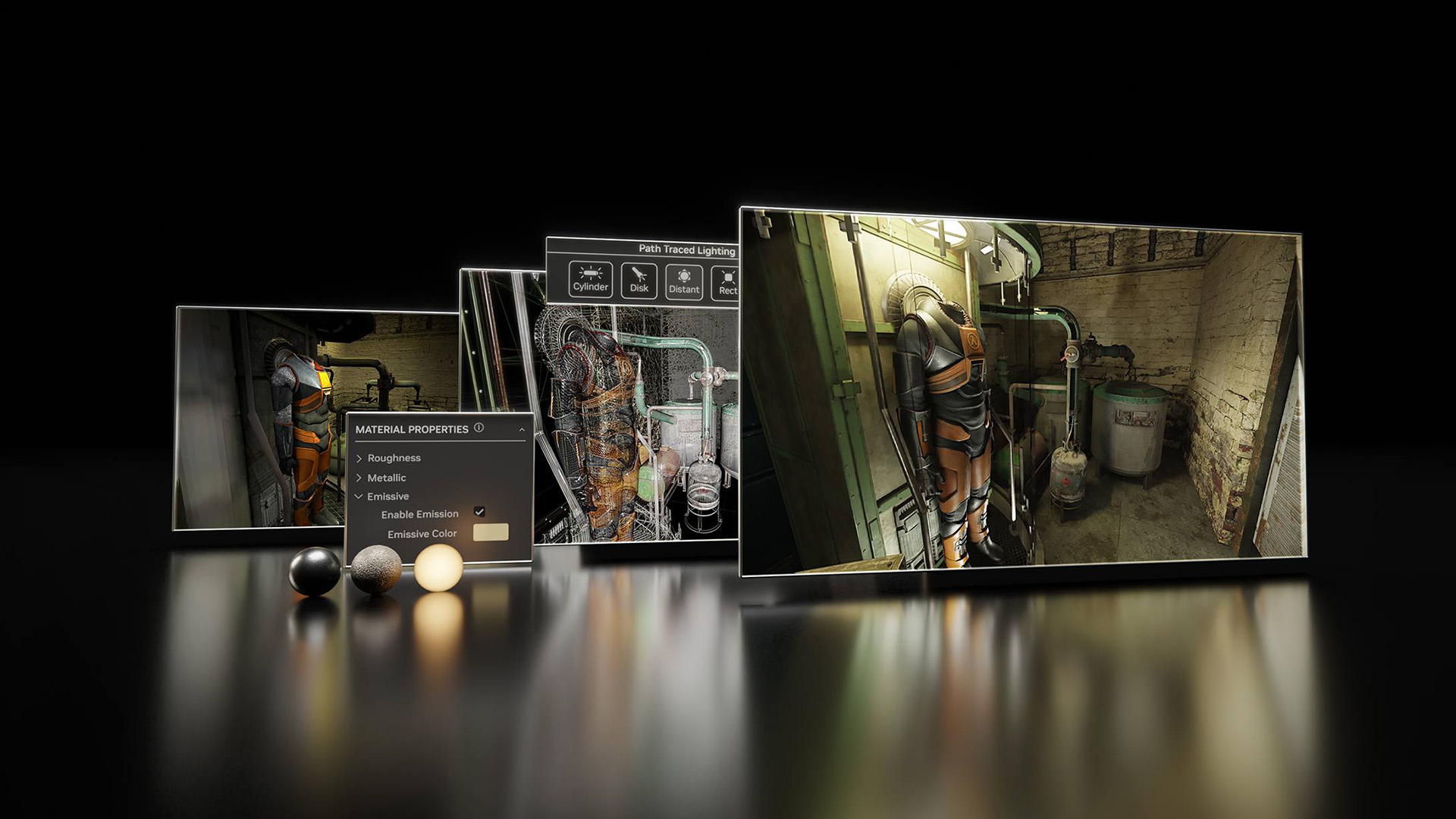
Starting today, Nvidia's new RTX Remix program has entered open beta, allowing everyone to test drive Nvidia's home-brewed game modding tool. The application allows anyone to remaster classic DirectX 8 or 9 games with new textures, assets, and full-blown path-traced lighting. In the past, modders could only gain access to Remix through Nvidia-sponsored mods such as Portal RTX and Portal: Prelude RTX, but now, with the application in open beta, any modder or gaming enthusiast can play with RTX Remix for free as long as their system meets the minimum quad-core CPU and RTX 3060 Ti (yes that's not a joke) requirements.
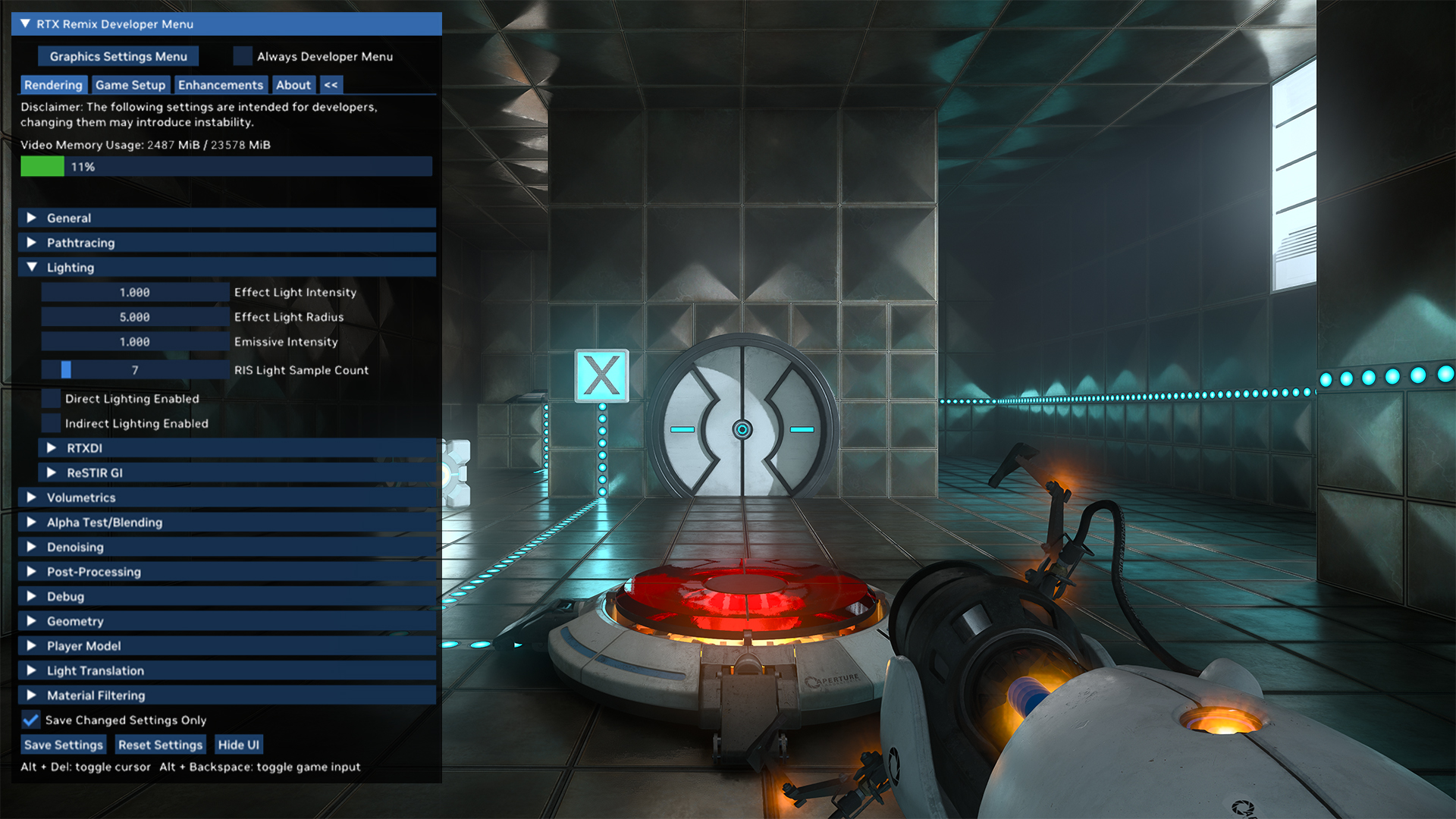
In layman's terms, RTX Remix is the "Unreal Engine 5" of modding tools. With this tool, modders can create high-quality remasters of classic DirectX 8 or 9 games, giving them 2024-era AAA ray-tracing graphical features efficiently without the need to revamp the game engine. Most (if not all) of RTX Remix's features are manipulated with a GUI, meaning that you don't need to know a game's source code in and out to mod the game or be a master programmer to use the tool.
That said, RTX Remix is not a one-click solution either. Nvidia affirms that while RTX Remix makes modding substantially more accessible, it still requires time and dedication to produce a quality product.
The app features many tools that make it easy to swap old assets with new assets and replace a game's proprietary lighting system with new ray-traced or path-traced light simulation. Remix's ingestion pipeline supports OpenUSD, a file format that is an open standard backed by many apps, including Blender and Adobe. For asset replacements, you can use Remix itself, an Omniverse-supported app, or a 3rd party app like Blender or Adobe Substance to create new assets or remaster in-game assets.
For lighting, Nvidia's modding tool can convert basic light sources into physically accurate dynamic lights capable of producing full-blown ray-traced lighting effects. Remix's physicalized lighting tech can also interact with physically based textures to further improve scene lighting.
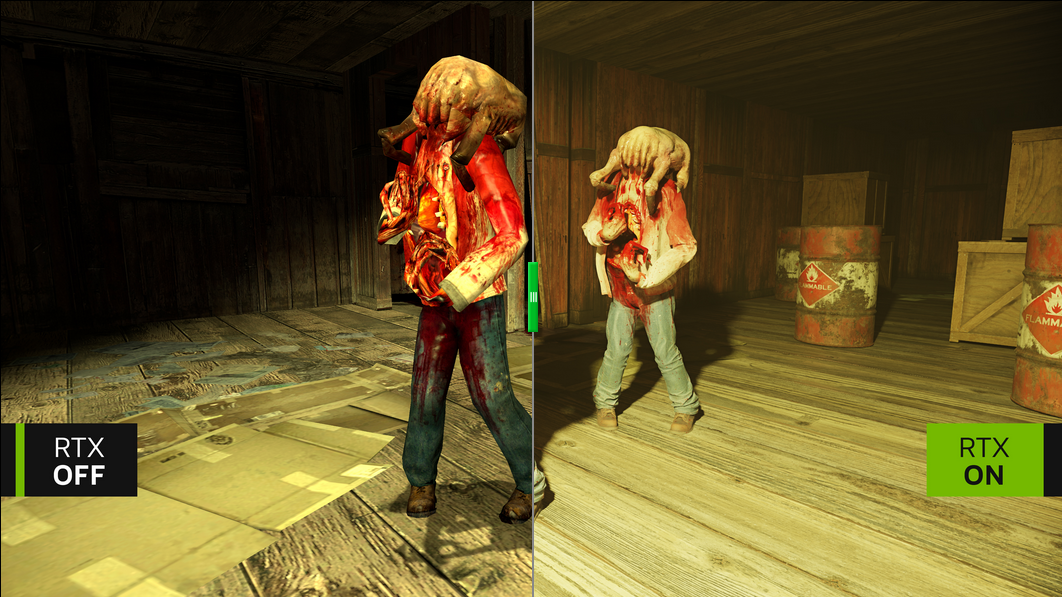
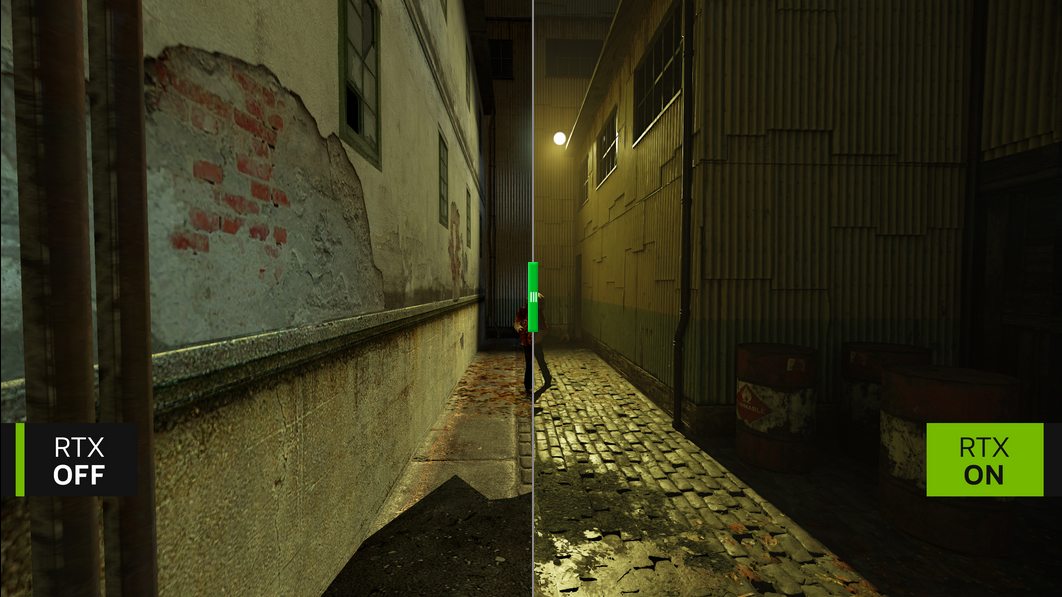
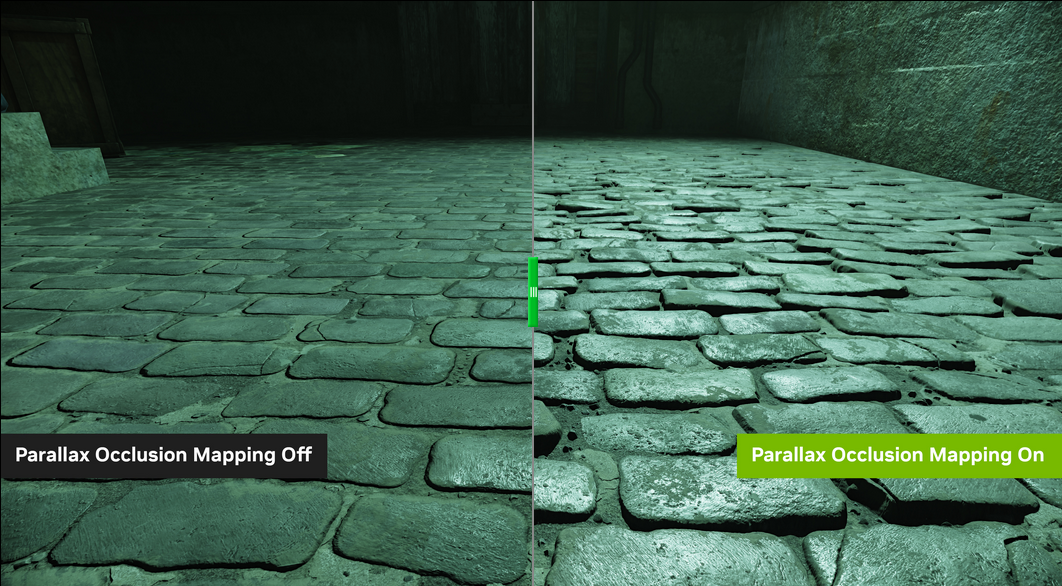
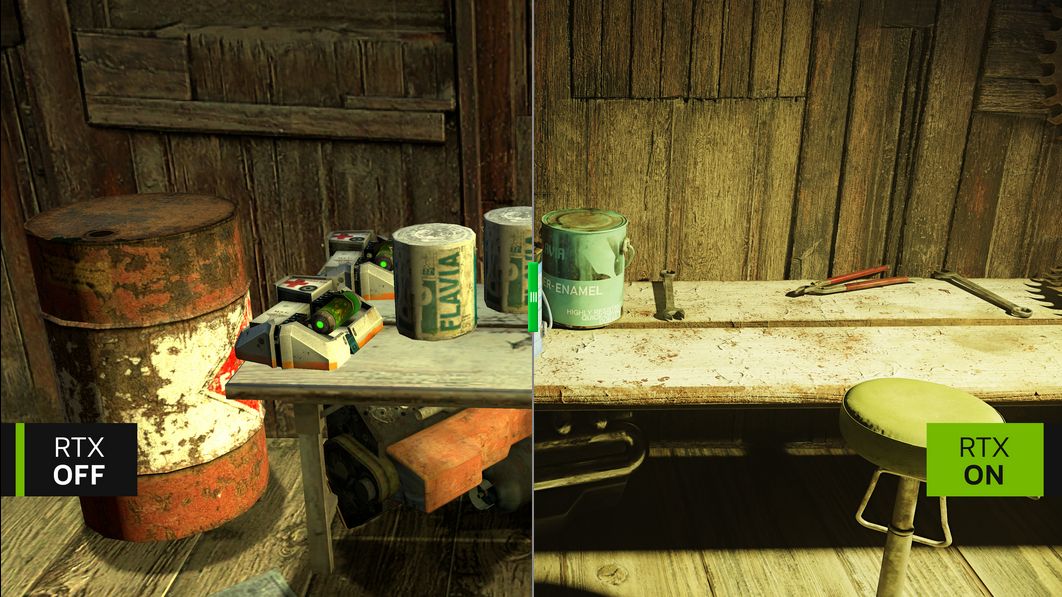
Speaking of textures, Remix features a generative AI texture tool that will automatically enhance older textures, giving them a higher resolution and physically accurate properties (so they can react to things like ray tracing). One new texture feature in particular that the open beta version of Remix has is Parallax Occlusion Mapping, which will enhance older 2D textures with three-dimensional properties.
For testing, a runtime feature built into Remix allows modders to test their work in real time.
Get Tom's Hardware's best news and in-depth reviews, straight to your inbox.
You can download the Beta here if you want to check out Remix. Nvidia's system requirements for RTX Remix include a quad-core Intel Core i7/AMD Ryzen CPU or better, 16GB of RAM, 512GB of SSD storage, and an RTX 3060 Ti or better. If you are wondering, the strange GPU requirement is due to Nvidia Omniverse integration. Omniverse also requires an RTX 3060 Ti at a minimum. However, Nvidia heavily recommends going with an octo-core Intel or AMD Ryzen CPU, 32GB of RAM, and an RTX 4070 or better for a more ideal modding experience.
If you need a GPU upgrade for RTX Remix, Nvidia's RTX 4070 Super launched a few days ago and features more performance than the RTX 4070. Or, if you want something with even more punch, Nvidia's RTX 4070 Ti Super is set to arrive later this week.
Nvidia has already demonstrated that RTX Remix is a very capable tool with projects such as Portal: RTX and the upcoming Half-Life 2 RTX project developed by Orbifold Studios. Both games have exceptional graphical fidelity, featuring full path-traced lighting and revamped high-quality textures and assets. But now, with the tool entering open beta, it will be interesting to see how capable this new application is in the real world from new and experienced modders with no handholding from Nvidia.

Aaron Klotz is a contributing writer for Tom’s Hardware, covering news related to computer hardware such as CPUs, and graphics cards.
